The U.S. Department of Energy (DOE) supports resiliency and recovery efforts in Puerto Rico by supporting planning, operational activities, and capacity building for both local public entities and federal agencies, ensuring investment decisions are driven by world-class data, modeling, and analysis. In this newsletter, the Grid Deployment Office (GDO) shares the latest milestones, updates, and highlights on this work.
Program Highlights and Announcements
Department of Energy Concludes Request for Information for $1 Billion Puerto Rico Energy Resilience Fund
On February 20, 2023, GDO released a Request for Information (RFI) to gather feedback from stakeholders in Puerto Rico on how to allocate $1 billion managed through the Puerto Rico Energy Resilience Fund (PR-ERF). This fund will be developed in consultation with local entities and communities to increase energy resilience and reduce the energy burden of vulnerable residents. The historic investment aligns with Puerto Rico’s public energy policy to achieve 100% renewable energy by 2050 as well as the Biden Administration's commitment to improving the island's energy system. The RFI closed on April 21 and received over 90 responses from a wide array of energy stakeholders in Puerto Rico, including industry, community groups, and individuals across the island.
The Department of Energy (DOE) is working to fast track this program and expects to launch a Request for Proposals (RFP) during the summer of 2023, which will focus on deploying solar and storage for residential single-family homes of Puerto Rico’s most vulnerable residents. DOE is also planning a separate program for community-level resilience investments that will be announced at a later date. The first round of PR-ERF awards will be announced in Fall 2023.
Learn more about the Puerto Rico Energy Resilience Fund.
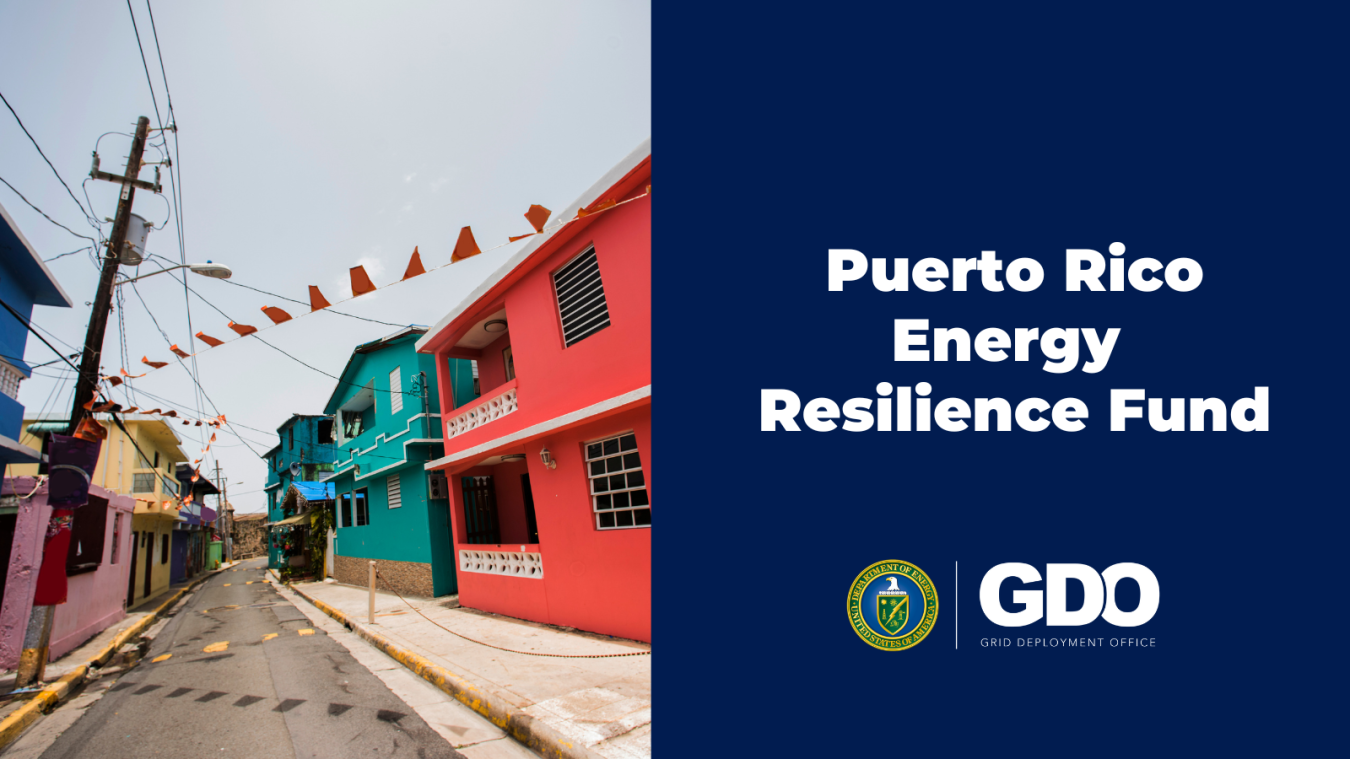
DOE Now Accepting Applications for Clean Energy Innovator Fellowship Program
On March 31, 2023, DOE launched the second round of the Clean Energy Innovator Fellowship, a unique workforce development program supported by GDO and DOE’s Office of Energy Efficiency and Renewable Energy (EERE) that matches recent graduates and new energy professionals to key energy organizations advancing clean energy solutions.
Through this program, hosts receive support to help them accelerate the transition to clean electricity and better take advantage of federal grid resilience and modernization funding opportunities, while also increasing access to clean energy career opportunities across the United States. This year’s fellowship will include six slots for recent graduates and energy professionals to work on clean energy projects at three Puerto Rican host organizations: LUMA Energy, the Cooperativa Hidroeléctrica de la Montaña, and the Puerto Rico Energy Bureau.
Applications for Innovator Fellows are due by June 12. Visit the Clean Energy Innovator Fellowship website to view host institution projects and information on how to apply.

Energy Secretary Jennifer Granholm Continues Stakeholder Engagement and Strategic Meetings in Puerto Rico
On March 31, 2023, U.S. Energy Secretary Jennifer M. Granholm concluded a five-day visit to Puerto Rico, focusing on the western and central regions of the island to hear from communities across the island about their unique needs and priorities. These visits help inform DOE’s work to rebuild and modernize the island’s grid with clean, reliable, and resilient power sources.
The Secretary continued her PR100 Community Engagement Tour, a series of townhall-style events coordinated with Hispanic Federation where residents and community members can speak directly with the Secretary about their suggestions for the PR100 study and the $1 billion Puerto Rico Energy Resilience Fund. These engagement-driven discussions provide critical local feedback that will help DOE develop community-tailored solutions to address aging infrastructure and improve resilience for Puerto Rico’s electric grid. As part of this tour, the Secretary traveled to Orocovis, Adjuntas, Yauco, and Mayagüez where she met with residents, community organizations, and student researchers at the University of Puerto Rico, all of whom highlighted the challenges residents face regarding power generation and discussed potential clean energy solutions to strengthening grid resilience on the island.
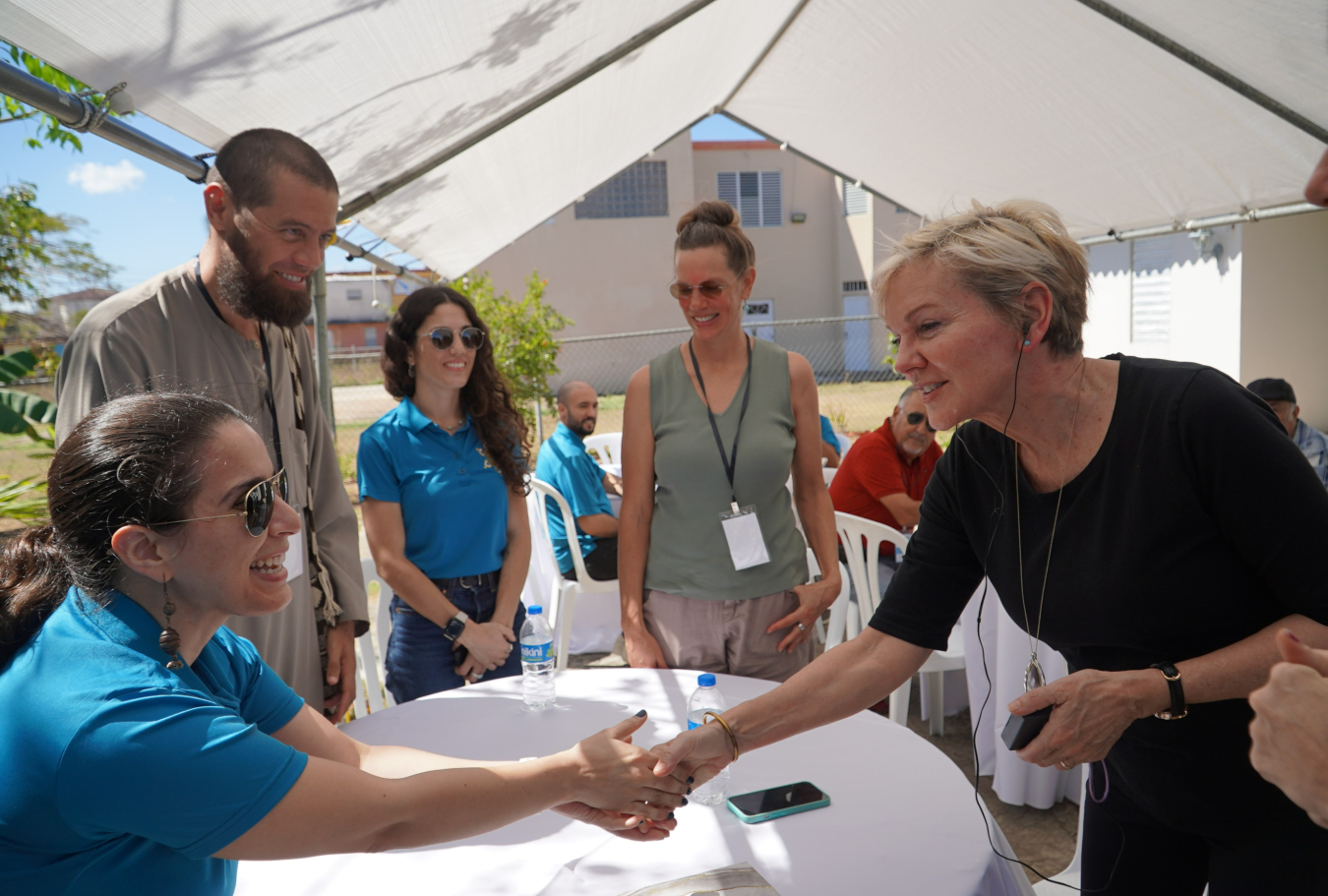
Secretary Granholm also toured a community in Castañer that utilizes solar power through a microgrid and participated in an energy and agriculture roundtable in Ponce. The Secretary visited a community solar installation in Isabela before participating in consecutive roundtables in San Juan focusing on securing resilient energy generation for residents with disabilities and prioritizing workforce and labor needs as communities transition to cleaner energy sources.
Workforce development as a key mechanism to sustain clean energy resources was also a major theme for this visit. This was a key component of the Secretary’s conversations with the International Brotherhood of Electrical Workers, the Associated General Contractors of America and students of LUMA College while on the island.
Learn more about Secretary Granholm’s visit to Puerto Rico.
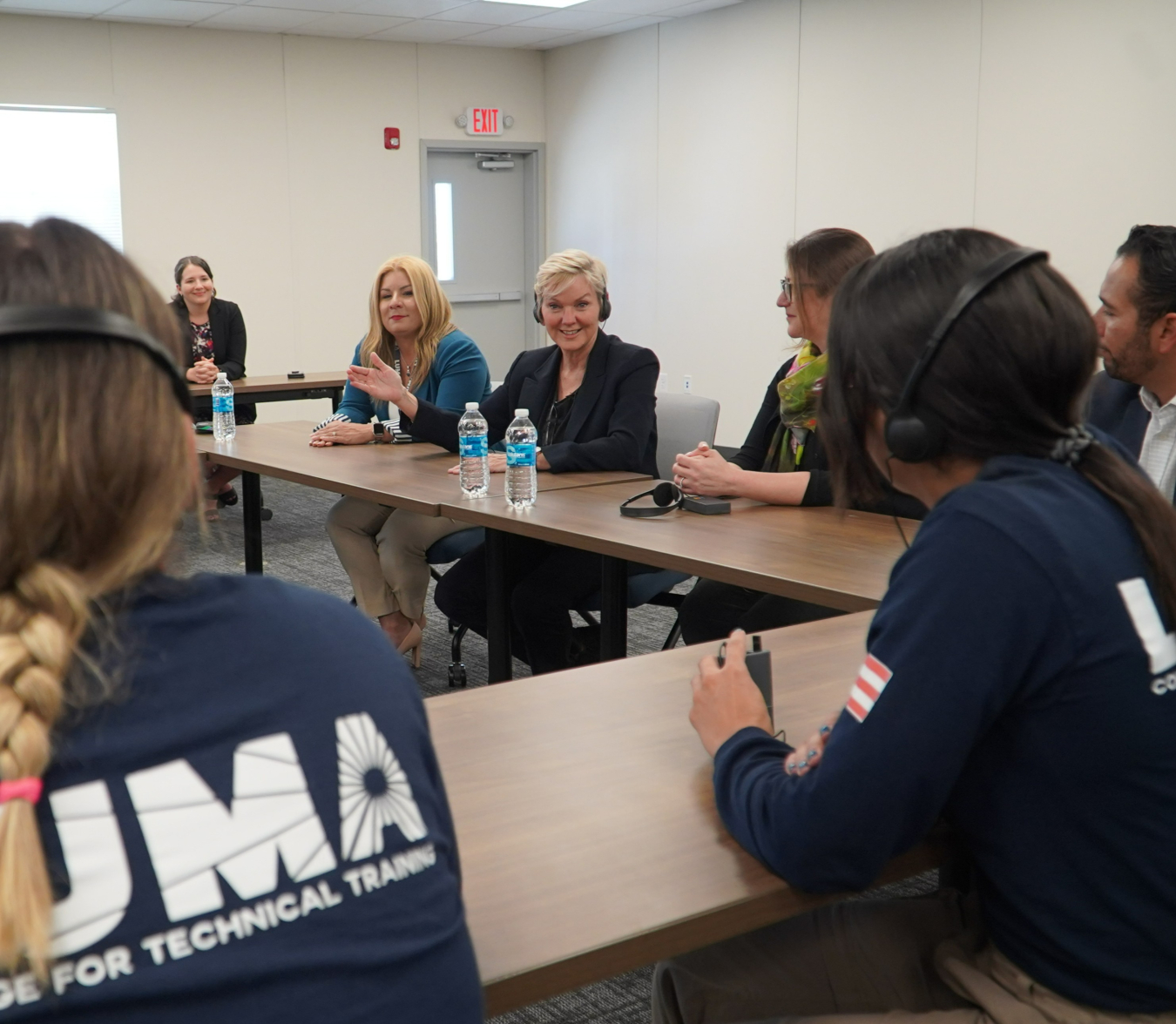
DOE Loan Programs Office Offers First Conditional Commitment for a Virtual Power Plant to Sunnova’s Project Hestia
On April 20, 2023, the DOE’s Loan Programs Office (LPO) announced a conditional commitment to Sunnova Energy Corporation’s Project Hestia for an up to $3 billion partial loan guarantee to make distributed energy resources—including rooftop solar, battery storage, and virtual power plant-ready software—available to more American homeowners. Project Hestia is expected to prioritize a focus on households in disadvantaged communities across the United States, including providing up to 20% of installed systems through its loans to homeowners in Puerto Rico. If finalized, the partial loan guarantee would enable Sunnova to provide loans for clean energy systems for approximately 75,000 to 115,000 homeowners throughout the United States and Puerto Rico.
Learn more about Sunnova’s Project Hestia.
In Case You Missed It
DOE and FEMA Publish One-Year Progress Update on PR100 Study
This past January, DOE and the Federal Emergency Management Agency (FEMA) released a one-year progress report for the Puerto Rico Grid Resilience and Transition to 100% Renewable (PR100) Study. In February 2022, DOE joined FEMA, the Department of Housing and Urban Development, and the Commonwealth of Puerto Rico in launching the PR100 Study—a community-driven and locally tailored roadmap to help Puerto Rico meet its target of 100% renewable electricity, improve power sector resiliency, and increase access to affordable renewable energy on the island.
This effort is made possible by the continuing support of the PR100 Advisory Group, comprised of energy sector stakeholders who meet regularly to discuss local priorities such as energy justice, land use, desired project outcomes, and more. The Puerto Rico Grid Modernization Team will continue to refine the PR100 findings and draw on them to coordinate federal funding streams and overcome impediments to infrastructure deployment.
The final PR100 study will be published in December 2023.
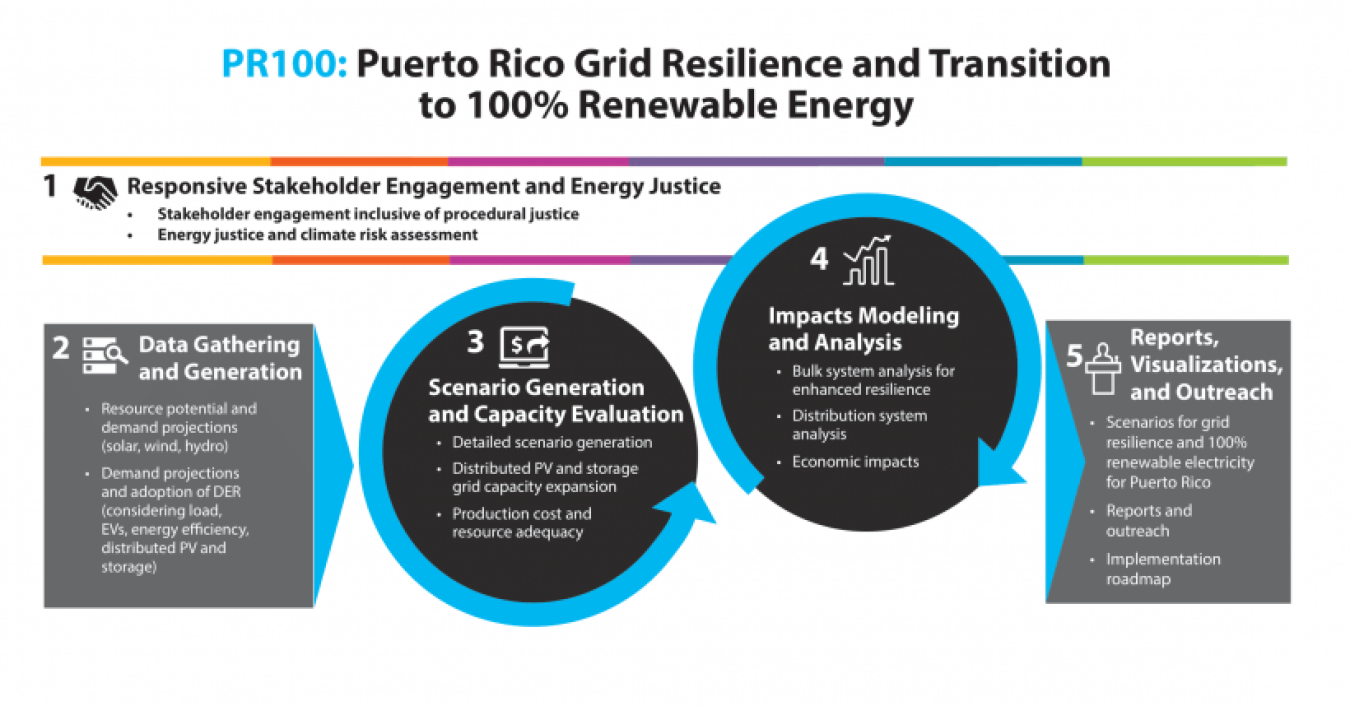
Microgrid Systems Are Coming to Vieques and Culebra
In March, FEMA approved the first phase of the Puerto Rico Electric Power Authority’s (PREPA) project to design a new solar-powered microgrid system for the island municipalities of Vieques and Culebra. The microgrid, which will be able to function independently from the main grid, includes a 12.5-megawatt solar-based system for Vieques and another 3-megawatt system for Culebra. This project aims to increase power generation capabilities and leverage renewable energy through solar panels. Once installed, medical facilities, schools and other critical service providers will be able to function in case the main grid fails.
DOE provided key technical assistance in the development of the preliminary microgrid design through the use of Sandia’s Microgrid Design Toolkit and workshops with community leaders in October of 2021.
Puerto Rico Department of Housing announces Centro Médico Microgrid Project Request for Proposals
Last February, the Puerto Rico Department of Housing (PR-DOH) announced a request for proposals (RFP) to attract world-class talent for the construction of a state-of-the-art microgrid at Centro Médico, the Caribbean’s main trauma center. Once complete, this project will ensure that critical medical services continue operating in the face of extreme weather events. Proposals are due on July 12, 2023, at 4:00 PM AST. DOE is proud to have leveraged the technical expertise of our National Laboratories to support the development of this RFP and will continue supporting this project by supporting the selection of a developer and reviewing microgrid designs.
Learn more about the Centro Médico RFP from PR-DOH website.
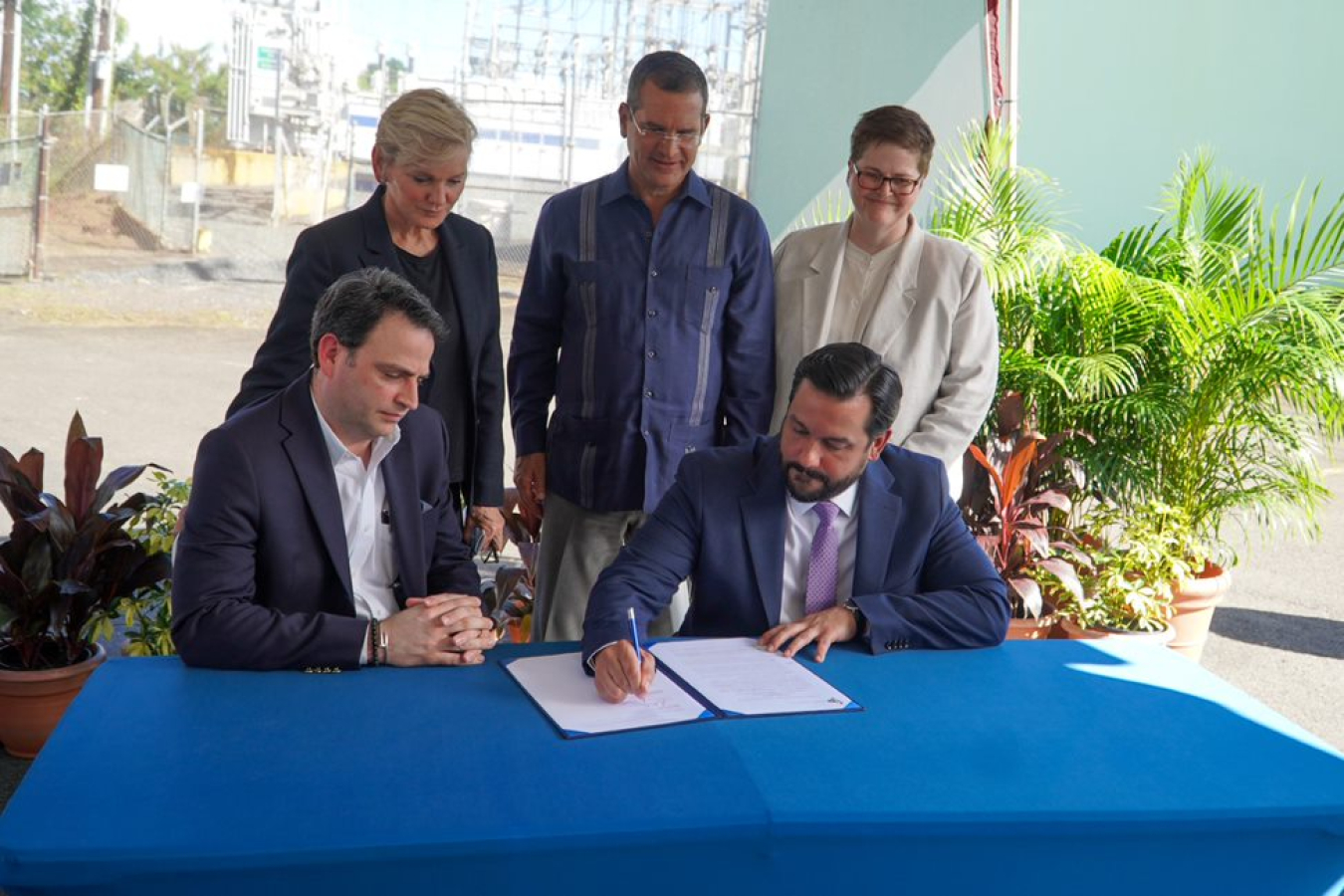
Puerto Rico Microgrids Awarded Community Power Accelerator Prize
The American-Made Community Power Accelerator Prize, launched on January 19, 2023, is a $10 million prize competition designed to fast-track the efforts of new and emerging solar developers to expand their operations to support community solar projects. The goal of this prize is to support a robust ecosystem of community solar project developers that incorporate meaningful benefits into projects across the United States.
Two microgrids in Puerto Rico were funded through this award: Community Through Colors’ microgrid in Vieques and the Cooperativa Hidroeléctrica de la Montaña in Adjuntas. The prize consists of three phases, with up to 25 winners selected in each round. On April 20, 2023, 25 competitors were selected to win $50,000 and advance to the next phase of the competition. In phase 2, competitors can each win up to $200,000. In phase 3, competitors can each win up to $150,000.
The prize is part of the Community Power Accelerator, an initiative of DOE’s National Community Solar Partnership (NCSP) that connects developers, investors, philanthropists, and community-based organizations to get more equitable community solar projects financed and deployed. The accelerator provides training, technical assistance, and an online platform to support the critical connections necessary to finance and expand access to affordable community solar.
Marcha del Sol: Adjuntas Celebrates Casa Pueblo’s Microgrid Serving the Community
On March 18, residents of Adjuntas came together for the Marcha del Sol, a celebration of the installation of solar-powered microgrids to combat frequent and sometimes long-lasting blackouts in the community. Using funding from the Honnold Foundation, local nonprofit Casa Pueblo connected more than a dozen Adjuntas businesses to microgrids using solar panels and batteries. These technologies are being enhanced with technical assistance through the University of Puerto Rico at Mayagüez and DOE’s Oak Ridge National Laboratory (ORNL), which is currently working on a new energy resilience technology known as a microgrid orchestrator. This innovation will allow neighboring grids to communicate and export energy to each other, enhancing microgrids’ reliability even when damaged. While this new technology could have remarkable impacts in Puerto Rico, it also holds broader potential for the global future of microgrid resiliency and reliability.
ORNL is also one of the DOE laboratories supporting PR100 through computer modeling and stakeholder engagement. Visit ORNL’s website for more updates about the lab’s microgrid research.
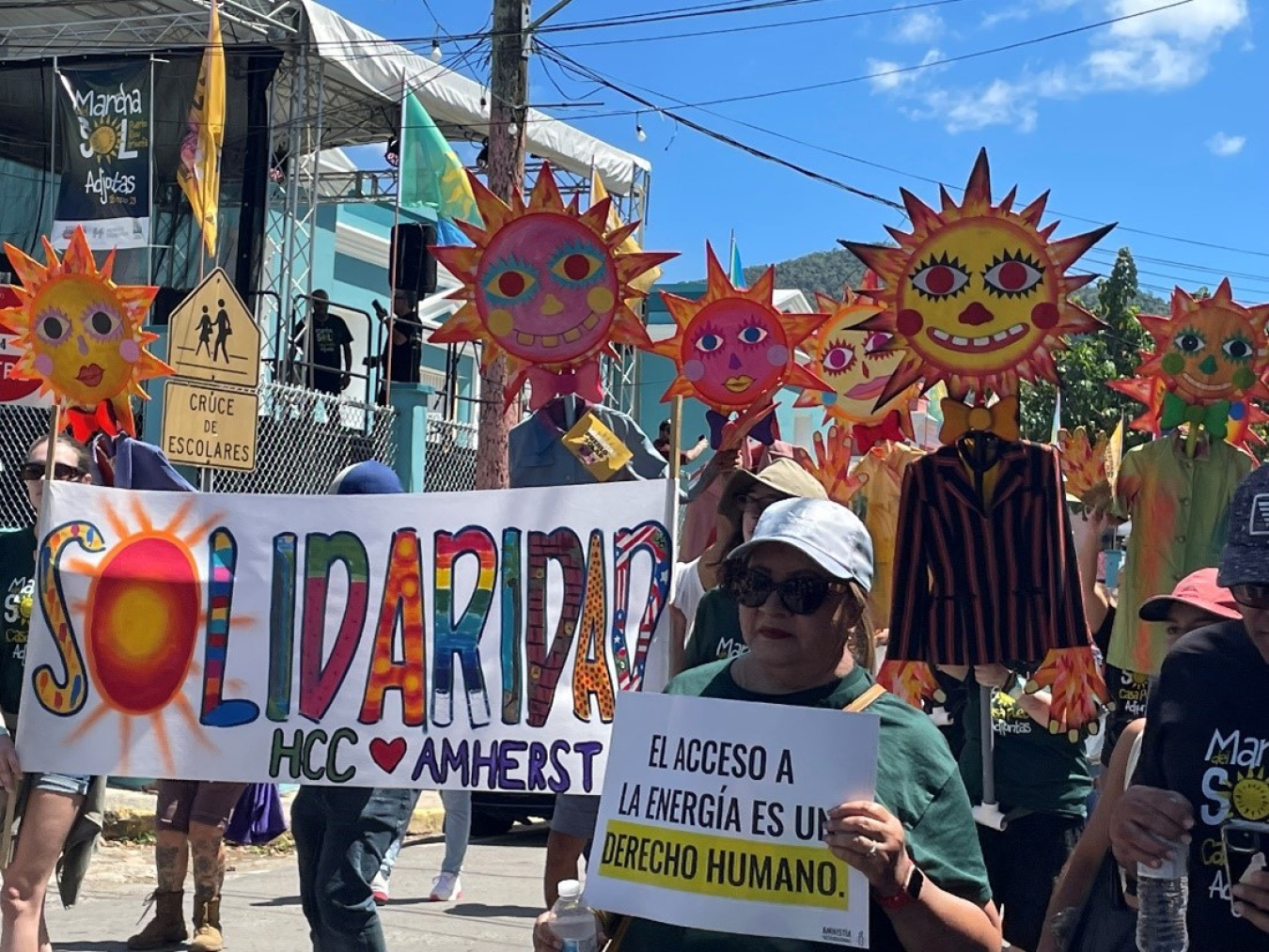
PNNL Hosts DCAT Training for LUMA Energy in Puerto Rico
Last March, staff from DOE’s Pacific Northwest National Laboratory (PNNL) traveled to Puerto Rico to train LUMA Energy staff on the Dynamic Contingency Analysis Tool (DCAT). This critical tool makes significant improvements to cascading energy outage analysis through a single, unique tool that automatically simulates and analyzes cascading sequences in real systems. DCAT can significantly improve how Puerto Rico prepares for extreme events in several ways, such as providing realistic modeling to enable effective decisions, improving the assessment of cascading outage impacts, and providing data to identify necessary grid enhancements.
Training participants included representatives from LUMA Energy’s system planning department, asset management department, and regulation department. The group provided positive feedback and indicated that the DCAT tool could be a vital planning and response tool for the 2023 hurricane season.
Salinas Community Organization Receives $30,000 for Grid Resilience Efforts
Last February, Secretary Granholm joined the Asociación de Residentes de la Margarita Inc. in Salinas to announce the association’s $30,000 award through DOE’s inaugural American-Made Community Clean Energy Coalition Prize (CCEC). This community-based organization aims to provide at least 40% of their elderly and low-income residents with community solar for a more robust and resilient microgrid. La Margarita was one of 10 teams from across the country awarded in Phase One of this award.
The CCEC Prize, in alignment with the DOE Office of Energy Efficiency and Renewable Energy’s family of prizes focused on justice, equity, diversity, and inclusion, is a multiphase competition aimed at developing partnerships between organizations within communities to address energy and sustainability challenges. The prize is intended to encourage and recognize coalitions assisting underrepresented communities—which are not seeing the benefits of current climate and energy investments—to address local energy challenges, focusing on clean, renewable solutions.
All Phase One winners – including La Margarita - are eligible to compete for an additional $115,000 each in Phase Two by submitting a coalition implementation plan. The prize will conclude after Phase Three with a Summit Event, at which all competitors who complete Phase Two will have the opportunity to present their progress and network with other communities and philanthropic partners. A $50,000 cash grand prize will be awarded to one final winning coalition at the Summit.
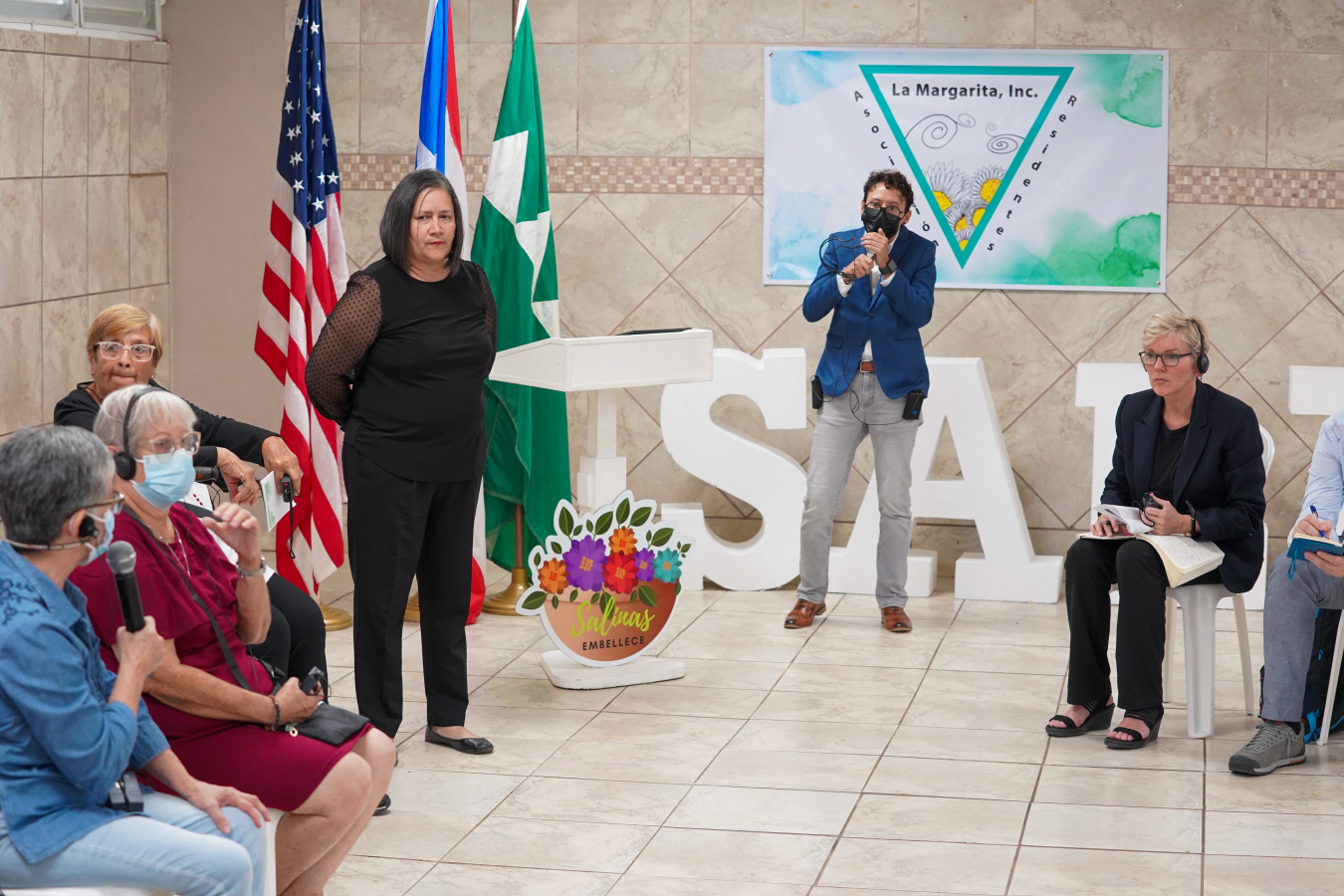
Tools and Tips
Energy Justice Initiatives Available through the Department of Energy
New climate and clean energy programs and investments like the Inflation Reduction Act, the Bipartisan Infrastructure Law, and the Justice40 Initiative are helping working people and communities fight climate change while saving money and building better lives with clean energy. Check out DOE’s Community Opportunities Handout to see a sampling of clean energy funding opportunities for local governments and community organizations, including solar panels, microgrids, and more.
Mobilize: Join Our New Online Community
Stay in touch by joining our online community – PR Energy Recovery and Resilience – on the Mobilize platform! Here, you can receive updates from DOE and the PR100 team, share information related to Puerto Rico’s energy transition, and connect with other stakeholders to implement the pathway to 100% renewable energy. Register here to join the community.
Hurricane Season Starts June 1
The 2023 Atlantic Hurricane Season begins on June 1 and lasts through November 30. While the Biden-Harris administration works hand in hand with the Government of Puerto Rico to provide its residents with a reliable and resilient grid, Ready.gov provides helpful information for individuals to prepare their households ahead of a storm, including tips for creating an emergency plan and supporting vulnerable family members.
Own a residential solar system? Experts at DOE’s National Renewable Energy Laboratory compiled a storm-ready checklist to help Puerto Rico and other communities vulnerable to hurricanes prepare for storms. These checklists are intended to help owners and operators of solar photovoltaic (PV) systems better protect their systems during a storm. Designed with stakeholder input, this resource includes separate checklists for utility-scale ground-mounted systems, distributed ground-mounted systems, and distributed rooftop systems. The checklists are available both in English and Spanish.
